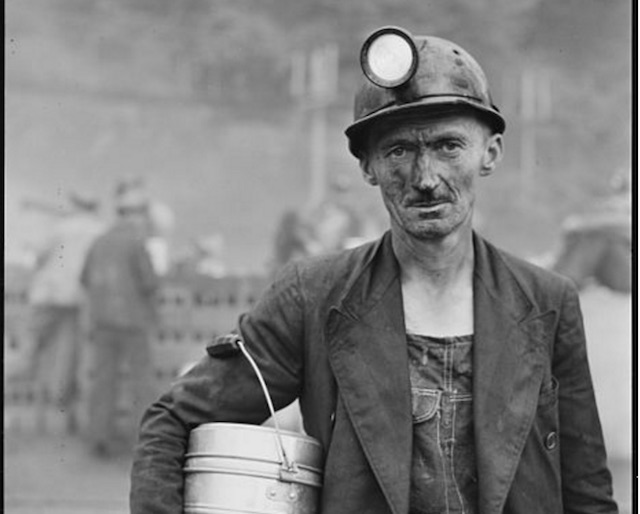
As the lazy days of summer come to an end, and we have to head back to our jobs and to the busyness of American 21st Century life, I’ve been thinking about the nature of “work.”
So much of the work that we do in our world is misplaced. Think, for example, of the spray meant to kill mosquitoes carrying the Zika virus but that killed millions of honey bees. How much of our “work” to control things has unexpectedly counterproductive, even harmful, outcomes?
We live in a state of urgency and alarm most of the time, hurrying from this to that. But what are we in a state of high intensity to do and to accomplish? And what would happen if we took more time to pause and reconsider, from all angles, the short term effects and the long term outcomes of our actions? What if we took more time for leisure and wonder? How would our world look and be different?
I recently read Changes in the Land: Indians, Colonists, and the Ecology of New England, by William Cronon (I highly recommend it.), and it gave me new insight into the history of our relationship to work and a better understanding of how, in our age of environmental collapse, we might begin to re-orient ourselves to work and to the land again.
Cronins’ book concentrates on the difference between the Indians’ and colonists’ use of the land.
But underneath that story is another story about the two different cultures’ assumptions about work.
When the colonists first came to New England, the Indians appeared not to work very much. They lounged around much of the time. The natural world seemed to be a kind of garden of Eden to the colonists, providing the Indians with everything they wanted. The bounty of the natural world seemed almost never-ending.
The colonists looked at the Indians and instead of following their example, and learning from them in this new land, they deemed the Indians “lazy.” After all, in a world of such abundance, why weren’t the Indians working to create even more comfort for themselves? The Indians, after all, didn’t have the nice houses and tangible things that Europeans had, and this made them seem poor to the Europeans. It was paradoxical, because on the one hand, the Indians almost never died of starvation, needed to work very little to get their food, and did not experience anything like the cold that Europeans were so accustomed to, not only because the Indians had more wood, but also because they used what wood they had sparingly, and they lived close together to share the warmth of the fire. The Indians, unlike the Europeans, already lived in a world of abundance. Yet a few early settlers looked at the Indians with admiration.
Why was this?
The Protestant/Puritan worldview was one in which humans were born in a state of original sin, out of joint with the world, and needed to work diligently and with difficulty to achieve salvation. According to this worldview Indians were not only lazy, but out of touch with Gods’ will.
However, the Indians had a totally different philosophy. They believed in a world that supported human life along with the lives of animals and spirits in pluralistic worldview, without a judging God, in a landscape of abundance. They did not need to “work” all the time because they had what they needed.
In this early encounter between two different cultures, we see how what we believe dictates how we live.
Perhaps some of you are thinking that the Indians could only live in sync with the land, because they had such a small population. Perhaps, but I want to suggest that the mindset—the stories we tell ourselves about our place in the world—comes before the population explosion, not the other way around.
After all, when the colonists first arrived in Plymouth, their population was tiny; they could have chosen to live more like the Indians, but they didn’t want to. They could have used more of the Indians’ farming methods, moved away from monoculture and used more nuts and fruits from trees and plants that required little cultivation.
But instead of learning from the Indians, the Europeans imposed their ideas of work onto the new landscape. They used monoculture farming practices, cultivated crops that were foreign to the natural landscape, introduced livestock and in a short time, the land of abundance that the Indians had cultivated for themselves, turned into a land of endless labor.
“The Garden of Eden” that the Europeans first saw had not just been an untouched state of nature. The Indians were not just lazy. The land of abundance that they Europeans first saw had been carefully created by the Indians. The Indians had used practices similar to current permaculture practices, and a method of controlled fire to encourage mature tree growth, plentiful wildlife, and abundant nuts and berries.
The Indians had worked with the land to help it be more productive. They had not worked against it and thus had created for themselves a life of leisure and ease.
Only a few Europeans could appreciate this accomplishment, but here is one from the 17th century writing about the Indians: “For their days are all nothing but pastime. They are never in a hurry. Quite different from us, who can never do anything without hurry and worry; worry, I say, because our desire tyrannizes over us and banishes peace from our actions.” ~ Pierre Biard
I think we can recognize ourselves in this description of people who are always in a hurry, full of worry and desire for more. But what if we tried to become more like the people who “are never in a hurry?” What if we also worked with nature instead of against it?
For the past 500 years, we have lived at odds with the natural world.
Because we are afraid of the Zika virus, we spray poison and kill thousands of bees, whose activity we need for our own survival. Because we believe that the world is not hospitable to us, we fail to see or respect the ways in which the natural world does support us. We plant mono-crops and use inorganic fertilizers and deplete the soil, and we often don’t even bother to plant native crops or to plant crops that support each other and the soils health. And at the same time we waste up to 40 percent of the food we produce while 14 percent of Americans (48 million) live in a state of hunger or food insecurity. We create more and more “smart phones,” bigger and bigger houses, more and more cars, and we are facing the greatest environmental crisis of human history. We spend our energy creating space probes to find another planet that might support life, while we disregard—and kill off—the life-supporting qualities of the amazing planet where we live.
Homo sapiens sapiens—people like us—have been around for roughly 200,000 years. Agricultural practices in which people live in a sedentary manner are only roughly 7,000 years old, starting in the Middle East (an area that is now, not coincidentally, largely desert).
Although we often are asked to imagine pre-historic people as living in a state of perpetual hunger, cold, danger, and fear, perhaps instead, they lived with a sense of greater leisure and abundance than many of us live with today. Evidence of sleep patterns, bone and teeth health, of full grown height, and evidence of family planning in cultures that are not bound in place by agricultural practices suggest as much.
Our “civilized” life style very well may make us “worry” more and “work more” than we need to as a species.
So what do we learn from this?
Obviously, we can’t rewrite history, but we can—and must—learn from history, and from the wisdom of our ancestors, especially during this time of environmental collapse. And understanding the origin of our ideas can help us shift them and re-orient ourselves to the world and to ourselves.
I suggest that individually and collectively we re-examine our assumptions about work and our place in the world.
Do we believe that the world is an inhospitable place that will only support us if we dominate it and earn our place here or can we believe that we can live in synch with the natural world?
And if we believe that we do not always need to work endlessly to ensure our salvation, if we can relax a bit into our life, then how will we change the decisions will we make?
None of us can alter the culture of work, but here are some areas that we can begin to make changes:
1) Reconsider your own relationship to work. If you pay attention to your assumptions about work, how many of these are inherited and how many are your own? Which do we want to keep, and which do we want to get rid of?
2) When you are making a new purchase, ask yourself whether you really need the new item: in an age of environmental collapse, do we need more things and all the material and human resources that have gone into making them? Entertain deeply the idea that less or fewer material things might lead to more health, enjoyment, and sustainability.
3) Look for ways to support permaculture instead of monoculture growing practices.
4) Make a practice of pausing before you make a decision—and encourage others—on every level, from your friends to top government officials—to do the same. Let’s consider not only the immediate consequences of your actions but also the far-reaching ones.
5) When you are making decisions around your job, be comfortable placing equal emphasis on leisure and personal time—remember your worth is not dependent on how hard you work or how much you earn.
6) Take time to cultivate your own creativity and the arts in general in our society—and make art accessible to all.
7) Advocate for more vacation time/sick time/parental leave at your workplace and on the national level.
8) Rediscover the emotional and health benefits of more sleep.
9) Spend time in nature, and get comfortable with it—after all, it’s our world that alone supports us.
10) Advocate for protecting our natural environment, and for learning from it—from the amazing cleansing power of marshes to the medicinal power of plants, the natural world has great wisdom and abundance and the capacity to support human life, if we allow it to.
~
Author: Nadia Colburn
Image: wikimedia
Editor: Ashleigh Hitchcock






Read 0 comments and reply